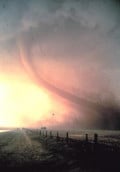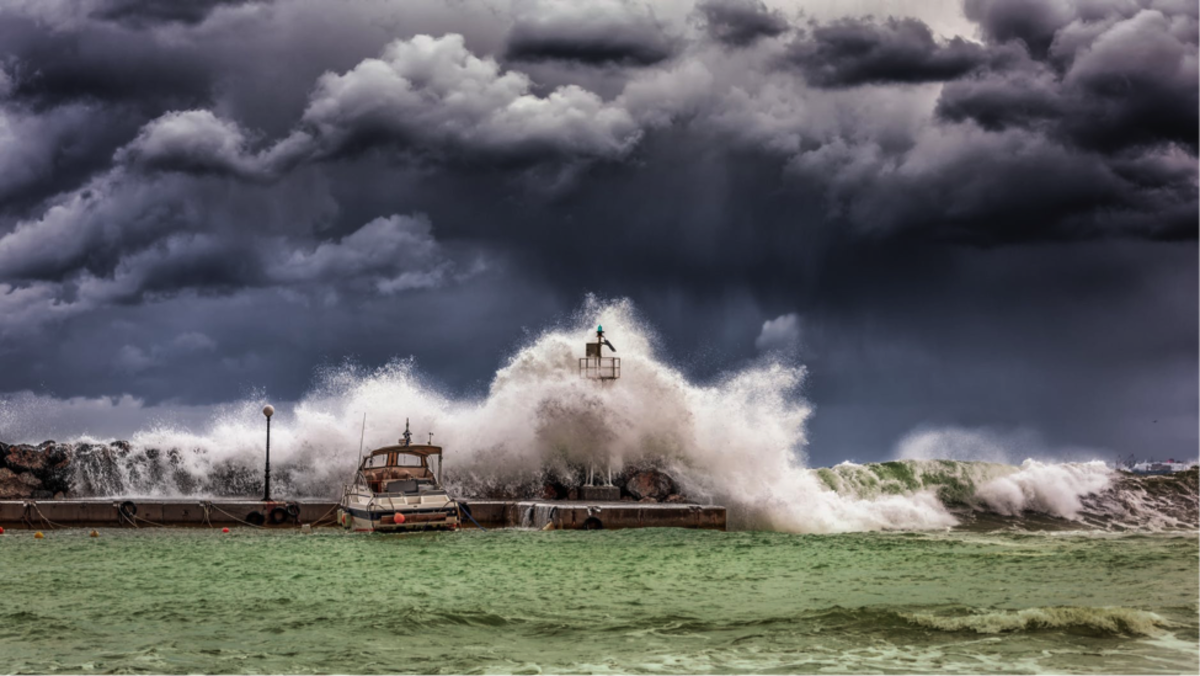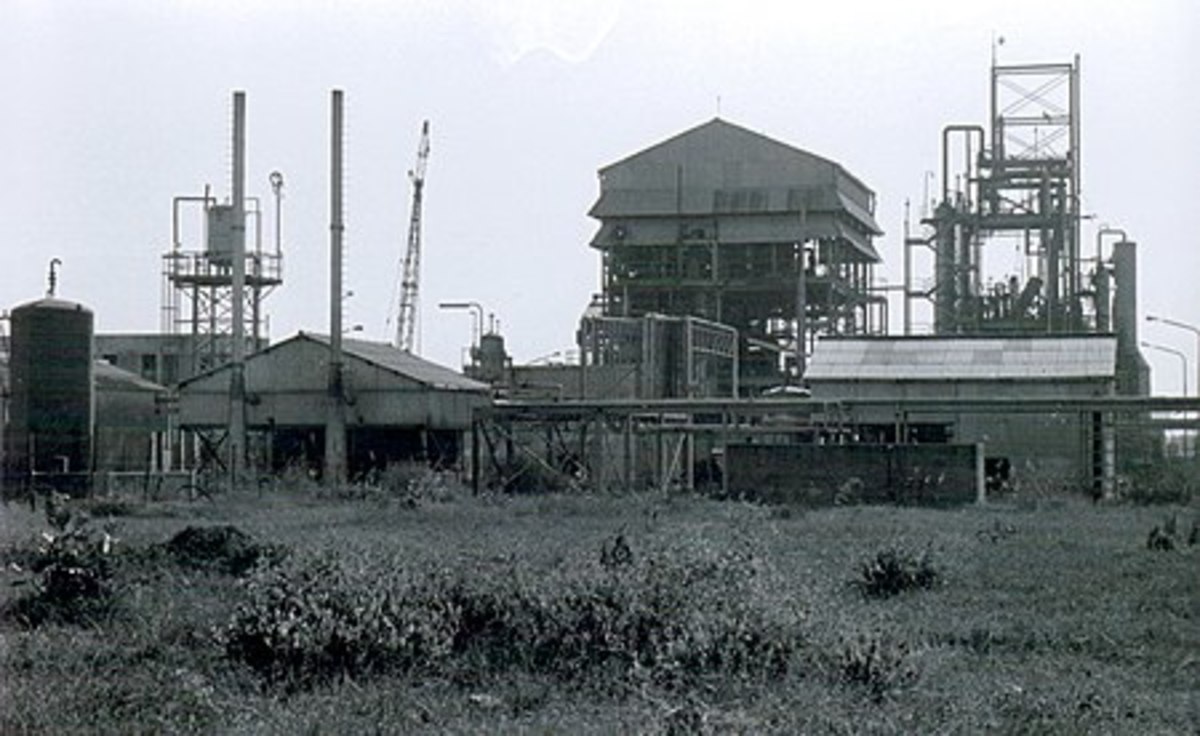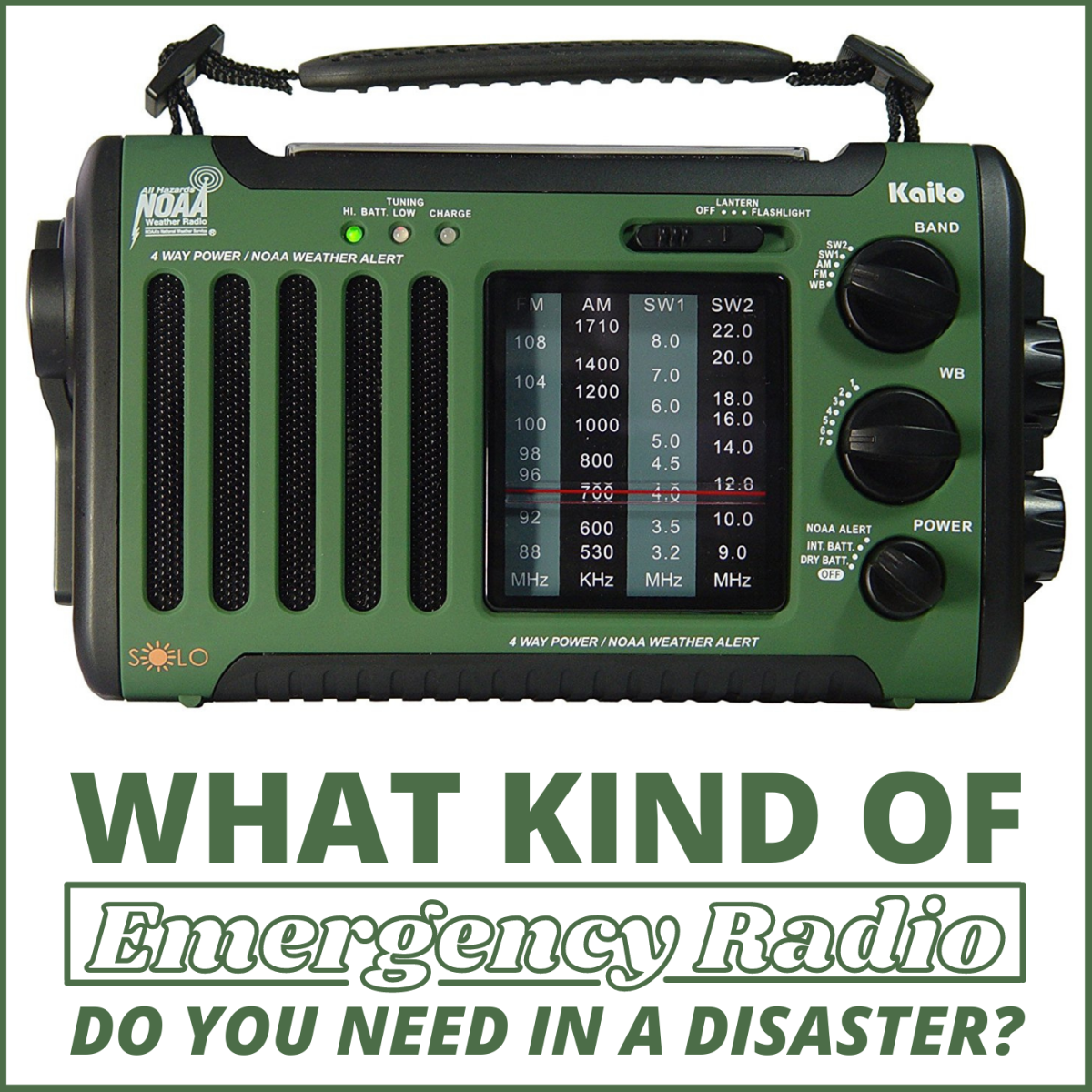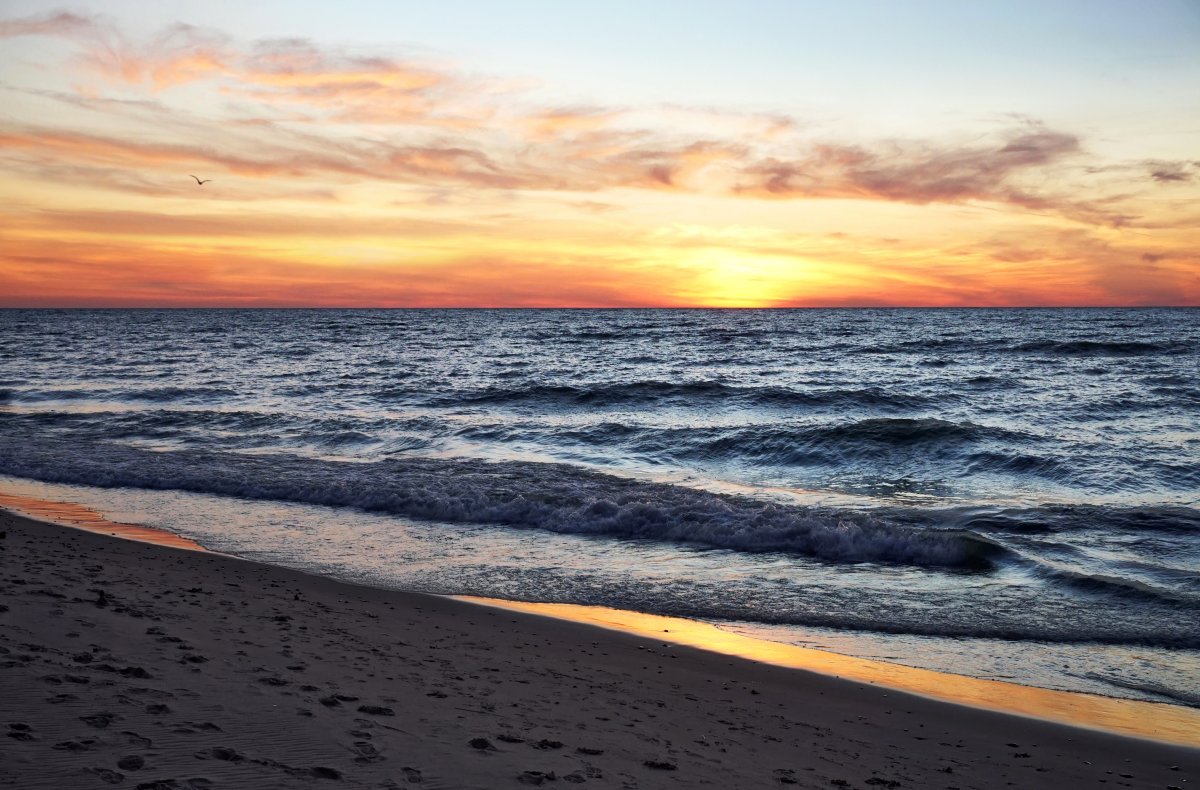Disaster Preparedness 101: Smart Planning Leads To Peace of Mind!

The "Positives" of Emergency Planning
Emergency planning? Disaster preparedness? It's not really all doom and gloom if you shift your perspective to "planning" and "preparedness." While all tragic events can't be totally avoided, you can have peace of mind knowing that you did your best to avoid loss of life and property.
So, if you care about yourself and your family (pets included), you'll be smart to have plans and supplies in place. . . just in case.

The Top 3 Benefits of Emergency Preparation
No matter what part of the world you live in, natural (and other broad-scale) disasters are very real occurrences. It just a part of our reality. Experiencing a disaster (e.g. hurricane, flood, earthquake) is traumatic enough, but being unprepared puts you at a total disadvantage which will ultimately add even more stress in an already stressful situation.
Here are a few benefits of being prepared. . .
- Can Help Reduce Anxiety. Being prepared . . . will help reduce the amount of stress and anxiety that generally occurs during an emergency situation. In many cases, increased amounts of stress and anxiety may cause a person to "freeze." Important: If you cannot think and react quickly in an emergency situation, it is unlikely that you will be able to effectively take care of yourself and your family.
- Can Help You React Appropriately. Being prepared . . . and becoming familiar with the appropriate procedures, equipment and/or supplies needed during relevant forms of emergency situations, will increase your chances of being able to react appropriately.
- Can Help Minimize the Impact of the Situation. Being prepared . . . by becoming knowledgeable of what may occur in certain situations, can help you take steps to minimize the impact of a situation. Example: You live in a hurricane region. You familiarize yourself with the characteristics of a hurricane and the procedures for evacuation. In the event that you find yourself in such a situation, you will have the know-how to minimize damage to life and property.
It's just plain smart to prepare for what might loom ahead . . .
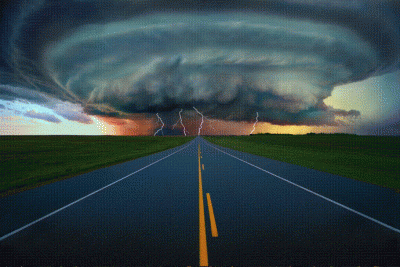

Types of Natural Disasters
Your first order of business is to become aware of disasters that may occur in your locale. In other words, learn about the dangers, warning signs and local procedures in the event of an emergency. A significant amount of information can be found online or, you could contact the weather bureau and ask if they could send you relevant information. You can also speak with neighbors and friends to get their feedback.
Famiiarizing yourself with the types of disasters that may occur in your area will ensure sufficient knowledge to plan emergency procedures.
While these extreme conditions can manifest around the globe, some regions are more prone to a particular type of disaster than others.
- Earthquakes: Earthquakes are characterized by a series of vibrations of the ground that can often lead to serious damage of surrounding buildings. If you are living in a coastal area, earthquakes can result in the formation of a tsunami (also known as a tidal wave).
- Floods: Floods are characterized by increasingly rising water levels, generally due to heavy storm activity and can happen just about anywhere in the world. If you feel a flood is likely to occur where you are living, ensure you stay up to ate on the current situation by monitoring news reports on the television or radio.
- Hurricanes: A hurricane is an extreme type of storm or cyclone that generally forms in the tropics. Hurricanes are accompanied by intense, windy storms, and often results in the production of storm surges (similar to a tidal-wave a storm surge is a dome of water that is forced onto the shore as a result of intense winds) and generally result in heavy damage due to extensive rainfall and consequent floods. In some cases, a hurricane may become so extreme that authorities will request you evacuate your home.
- Tornadoes: A tornado is characterized by a high-speed "rotating" column of air extending between a funnel-shaped cloud and the surface of the earth. Some tornadoes can attain speeds in excess of 200 mph, cutting a path of destruction 50 yards wide up to over a mile wide. They may touch down for only a matter of seconds, or remain in contact with the ground for over an hour.
- Thunderstorms: Thunderstorms are a more common occurrence, and for this reason people often forget that they have the potential to be extremely dangerous. Every thunderstorm produces lightning and has the possibility to generate tornados, extreme winds, rain and consequent flooding.
10 Emergency Planning Tips
Organization is key . . . and being organized will ultimately result in an effective response to an emergency situation. This can aid in decreasing the damage caused by a disaster. With this in mind, here are some basic emergency planning considerations:

>>> #1: Communication
If a disaster were to strike, ideally it would be during a time that the whole family is together. Unfortunately this is not always the case, so be prepared by organizing a means of communication or designate a meeting place. Discuss how you will communicate in a variety of different situations.
>>> #2: Existing Procedures
Find out about any emergency procedures that may be exist in your work place or in your children’s school. This may help you organize a means of contact or a designated meeting area.
>>> #3: Escape Routes
Trace your house or draw a floor plan in order to determine appropriate points of exit for different situations. Aim for two or more exits from each area of your home.

>>> #4: Where to Group
In the event of an emergency, each family member might find themselves exiting from a different areas of your home. To ensure everyone evacuates safely, designate an appropriate area for everyone to gather.
>>> #5: Designating 'Shelter' Areas
Taking shelter may refer to shelter in your home or shelter someplace else. It is wise to plan and designate 'safe' areas in the house for a variety of situations. It's also advisable to plan external forms of shelter (such as staying with a relative or in a hotel, etc) in the event that you are required to leave your home.

>>> #6: Pet Care
If you have pets, make sure you have the necessary equipment and supplies for your him/her (e.g. food, water, an identification tag). It is also advisable to ensure your pets medical records are up to date (keep a copy of these if possible), and that your pet has undergone all relevant immunizations or vaccinations. For specific advice relating to the area you live in, contact your local animal shelter or emergency department.
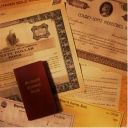
>>> #7: Important Documents Storage
Store all important documents in a safe place away from the home if possible (e.g. in a safe deposit box). If you are going to store the contents in your home, look into purchasing a fire-proof safe. Note: Even if you use a safe, be sure put documents inside plastic baggies in the event of a flood.
>>> #8: Insurance
Purchase relevant insurance in order to provide a means of replacing your possessions if a disaster should cause damage to your home or contents. It's a good idea to createe an inventory of the possessions you own (writing a list and taking pictures or video are the most effective means of doing so. Purchasing health and life insurance is also beneficial.

>>> #9: Utilities' Turn-Off Valves
In some emergency situations, authorities may request you shut off the utilities servicing your home. The utilities you will be required to shut off will be determined by the type of impending emergency condition. This is generally for safety purposes. So, familiarize yourself with the processes involved in shutting off the gas, water and electricity in your home. It's also a good idea to teach all responsible members of your household the shut-off procedures as well.
- Gas: Shutting off gas is usually done to prevent the spread of fire following a disaster. There are different shut off methods for different states and countries. To ensure you are familiar with the process of shutting off the gas for your home, contact your gas provider. If You DO have to turn the gas off, make sure you have a professional turn it back on.
- Water: In the event of a severe conditions, it's quite possible that a cracked pipe in the water mains could contaminate the water leading to your home. To shut off the water supply, locate the main house valve for your water supply (find out about the location ahead of time, to avoid having to look for it in an emergency situation) and simply turn it to shut position. Make sure the valve is completely shut. You may turn the water back on once authorities notified you that it is safe to do so. Note: Water valves have a tendency to rust, so make sure you check regularly and have the valve replaced if necessary. This will make opening and closing the valve easier in an emergency situation.
- Electricity: You may be requested to shut of your electricity if there is concern that gas is leaking. That's because electrical sparks have the potential to ignite gas, thus causing an explosion. To shut off the electricity in your home, locate your circuit box, then shut off each individual circuit in the circuit box before shutting off the main circuit breaker.
And last, but certainly not least:
>>> #10: Emergency Supply Kit
In the event of an emergency situation, you shouldn't have to spend precious time to search and gather needed supplies. You can learn how to make your own emergency supply kit along with and what items you will require.
Everything Else You Need to Know Is Right Here. . .
Here are the top 5 books that people are using to craft their own emergency preparedness action plan.






